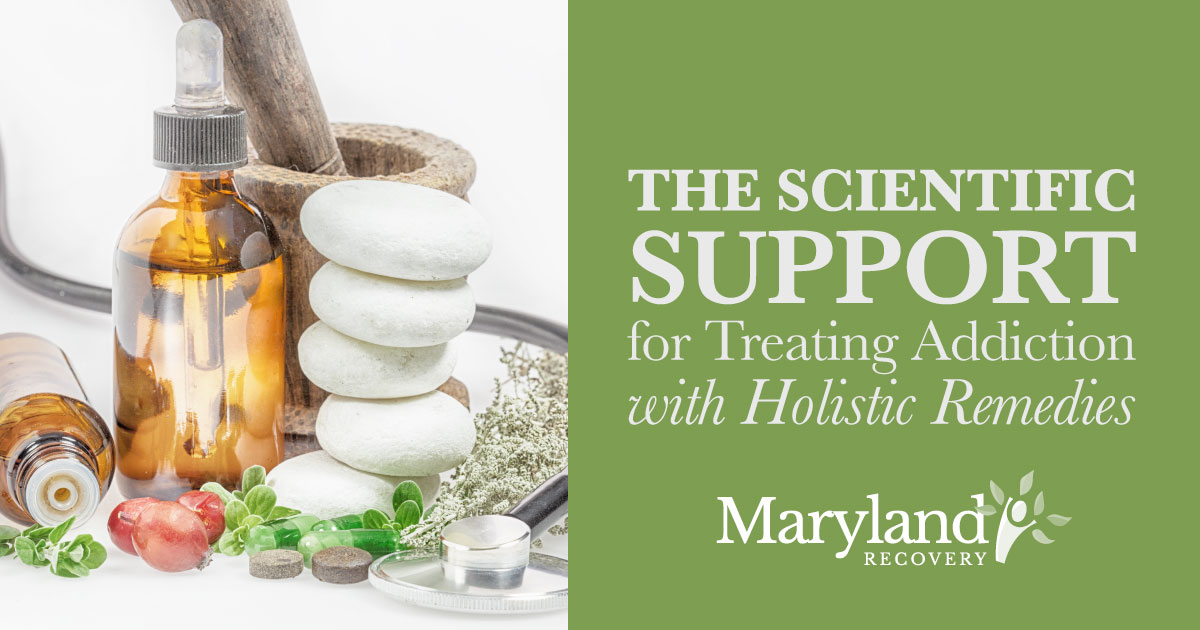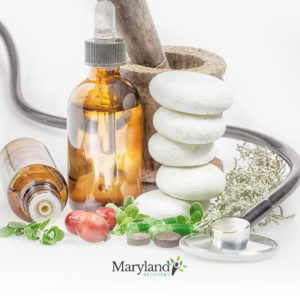 Holistic medicine (also known as complementary or integrative medicine) is more popular in the United States than ever before. Often, these techniques are used to improve focus, manage anxiety and restore spiritual wellness.
Holistic medicine (also known as complementary or integrative medicine) is more popular in the United States than ever before. Often, these techniques are used to improve focus, manage anxiety and restore spiritual wellness.
But what about when it comes to substance abuse? Many recovery programs across the country advertise holistic treatment for drug and alcohol addiction, but not all of these facilities provide the same level of care.
In an interview with Psychology Today, Westley Clark, a physician and director of the Center for Substance Abuse Treatment at the Substance Abuse and Mental Health Services Administration, offered his expert insights on the value of holistic remedies:
“Many evidenced-based programs which take a holistic approach to treatment may incorporate aspects of alternative or spiritual healing. These approaches may also be helpful so long as they are used as adjuncts to evidenced-based practices.”
It is important for those struggling with addiction, as well as their families, to have a firm understanding of what holistic addiction treatment is, as well as which therapies are supported by scientific research to aid in recovery. That way, families can make an informed decision about where to get help for their loved one’s addiction.
What Is Holistic Addiction Treatment?
 The Academy of Integrative Health and Medicine defines holistic medicine as “healing that addresses the whole person – body, mind and spirit.”
The Academy of Integrative Health and Medicine defines holistic medicine as “healing that addresses the whole person – body, mind and spirit.”
While traditional medicine focuses solely on treating illness from a physical perspective, holistic medicine can supplement these treatments by simultaneously addressing the patient’s spiritual and psychological health. This bridging of multiple approaches is the ideal application of holistic remedies.
Remedies paired with traditional medicine in a holistic recovery program often include:
- Yoga
- Meditation and Mindfulness
- Acupuncture
Unique Benefits of Holistic Recovery
Recovery programs that incorporate holistic medicine into recovery plans offer unique benefits. For many patients, a more nuanced, holistic approach to recovery could mean the difference between long-term sobriety and a deadly cycle of relapse.
The following benefits have been associated with holistic treatment for drug and alcohol addiction:
Greater Access to Traditional Medicine
One of the least-touted benefits of holistic recovery programs is that they may encourage individuals who reject the idea of a traditional treatment to get help. These same individuals may be more comfortable seeking treatment in an environment where practices like yoga are the norm.
Opportunities for Participants to Develop New Skills
In line with the holistic perspective of treating the mind, body and soul, holistic recovery programs encourage participants to learn new hobbies and apply those skills as a part of their long-term recovery.
Prepare Patients to Change Their Lifestyles
Holistic recovery programs do more than teach patients techniques for reducing stress in recovery. They are equipping each individual with a tool box of relapse-prevention skills, such as mindful meditation, which will be used long after they graduate from a recovery program.
Studies Support Holistic Recovery Programs
Due to the lack of available data, it’s difficult to identify why certain holistic remedies seem to be so effective in helping patients overcome their addictions. However, there are numerous examples of research that support the idea that holistic techniques can play an important role in recovery. As a supplement to traditional medicine, holistic medicine continues to show promise in addiction therapy research.
The types of scientific research supporting holistic recovery are varied and persuasive. Examples of these diverse studies include:
- In 2013, a study published in Complementary Therapies in Medicine concluded that participating in yoga and mindfulness-based meditation during recovery helps make patients less susceptible to relapse later in life.
- A 2014 scientific literature review published in the Journal of Human Behavior in the Social Environment pointed at consistent evidence of holistic medicine’s ability to enhance addiction counseling and therapy.
- In 2015, a report published in the Australian Journal of Primary Health supported the idea that there is a powerful link between mental and physical health. These findings also support the general principles of holistic medicine.
Learning More About Holistic Recovery Programs
The best way to learn more about the relationship between holistic recovery and traditional addiction treatment is to speak with experts. At Maryland Recovery, we ensure that each patient’s recovery program is tailored to his or her physical, mental and spiritual needs.
We’ve seen how effective this comprehensive treatment strategy can be, and we are always happy to discuss our strategies. Review our holistic recovery program or contact us directly to learn more about our unique approach to healing from addiction.
Reviewed by Christopher Schwartfigure MS, LGPC, CAC-AD








